Introduction #
Ever have one of those days where you want to conquer the world but just can’t muster the energy to set up an actual board game? Enter Behold: Rome—a solo civilization-building game you play entirely in your hands. Yup, no table required. Intrigued? So was I. I mean, what’s more tempting than building an empire without ever leaving the comfort of your couch? But does convenience alone make a great game? Let’s dive into whether this portable powerhouse lives up to the grandeur of its namesake.
Overview #
Behold: Rome is a solo civilization-building card game you play entirely in your hands–no table needed. You’ll manage resources, develop your civilization, and strategically build an efficient engine to outpace your rival nation. Set in the grandeur of ancient Rome, the premise is straightforward: grow your civilization through careful resource management, conquest, and clever card play, attempting to solidify your empire’s historical dominance.
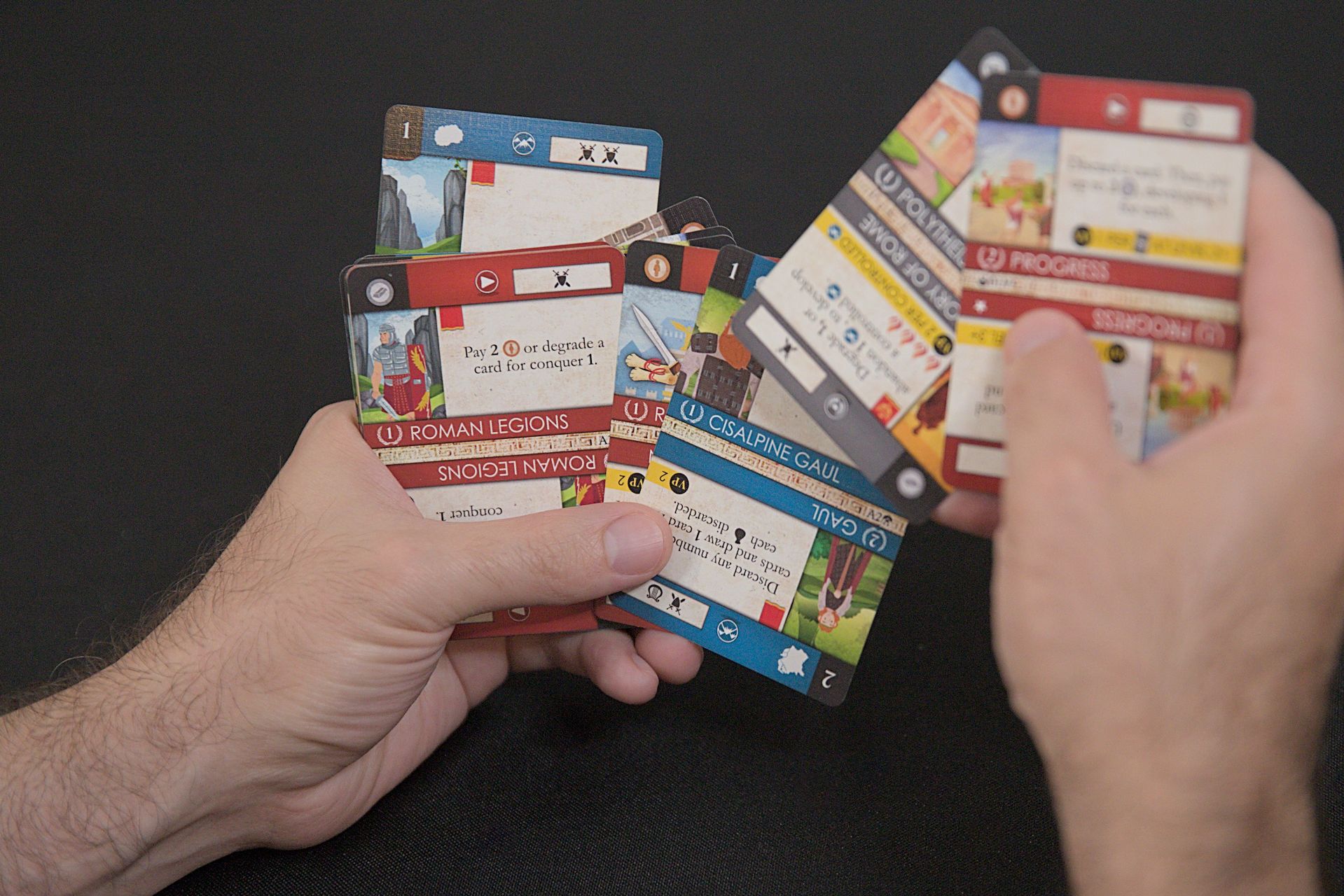
Gameplay unfolds over 12 rounds, with each round consisting of multiple turns. Each turn is split into two phases: the action phase, where you play cards to generate resources, develop your civilization, or conquer new regions; and the end-of-turn phase, which involves discarding and replenishing your hand. Cards in your hand represent various elements of your civilization—population, materials, and regional wealth—and can be played for actions or stored as resources for future turns.
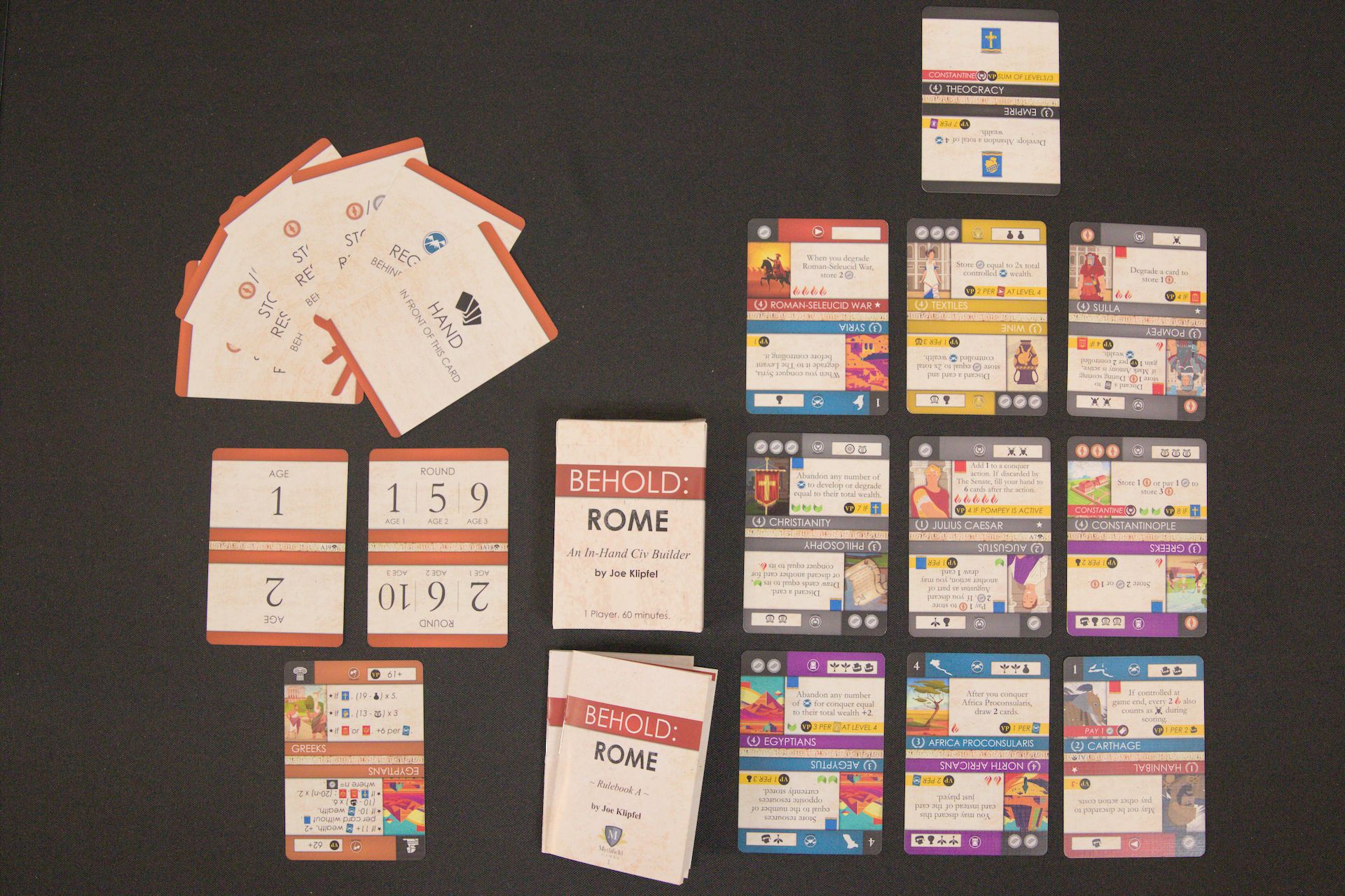
Conquering regions lets you strengthen your civilization, but there’s a careful balancing act. You must manage unrest and prosperity, upgrade your nation through various stages—Monarchy, Republic, Empire, or Theocracy—and decide when to abandon territories strategically to level up or gain tributaries. After 12 rounds, you tally your civilization’s points, including region wealth, individual card scoring rules, and prosperity versus unrest, then compare your score against a rival civilization to determine if you’ve successfully secured your legacy.
Gameplay #
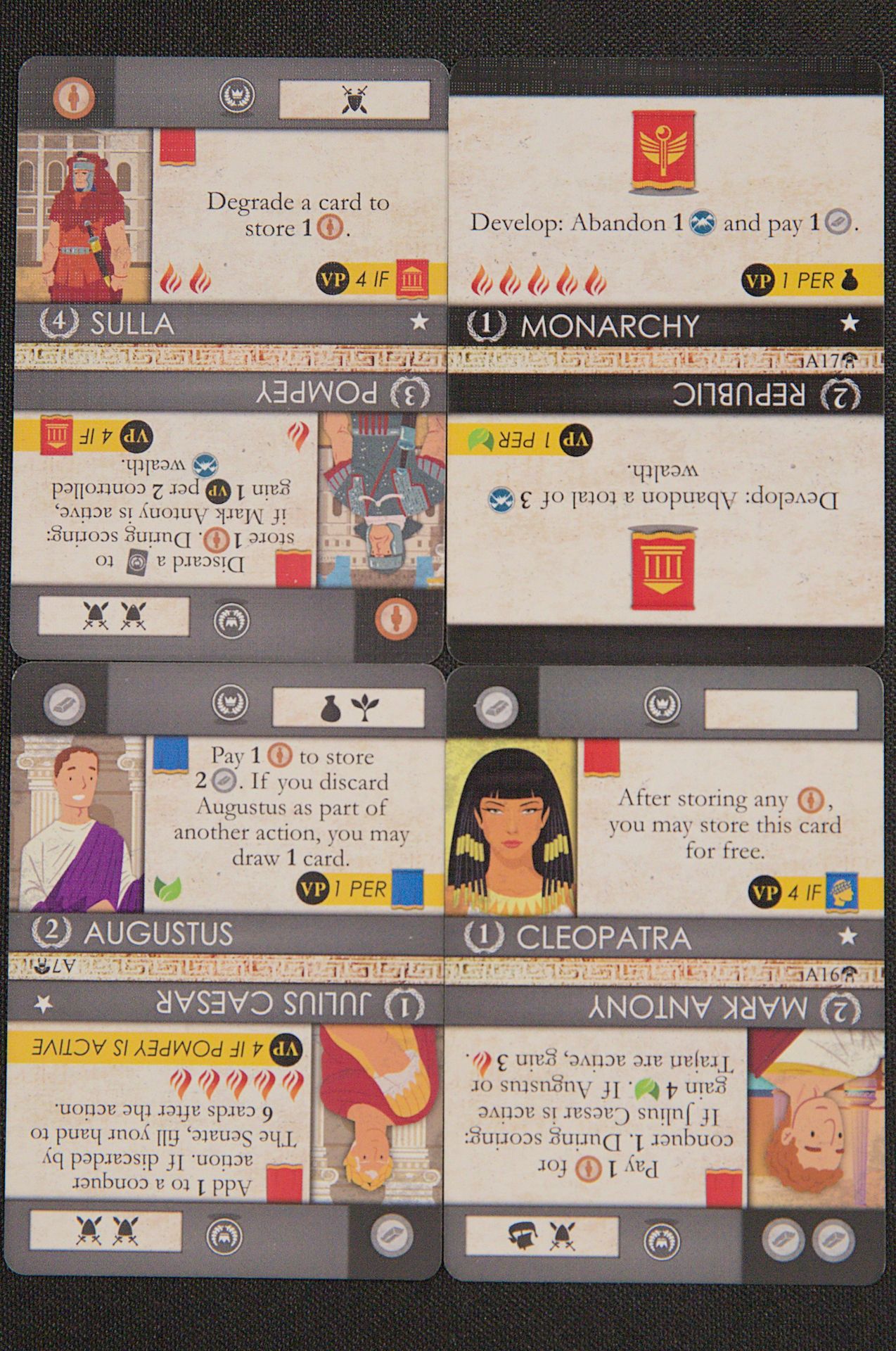
Right off the bat, let me just say: there’s a surprising depth packed into this deceptively small package. Joe Klipfel is known for squeezing a lot of strategy into compact games—something fans of his Dragons of Etchinstone will definitely recognize—and Behold: Rome ramps up that clever puzzle-solving to another level. Each card offers numerous synergies and scoring opportunities, making every turn feel meaningful and engaging.
Admittedly, the complexity can also feel overwhelming. Balancing scoring opportunities with the need to suppress the rival civilization’s points made my head spin. Here’s a typical stream of conscience for a turn: “I could develop this card, to unlock a more favorable scoring condition, but then that upgrade has keying icons that help my rival’s score and it comes with more unrest which will reduce my score that end, unless I can mitigate that unrest…” I was constantly flipping cards and digging through the deck trying to chart my strategy and it felt like playing Sid Meier’s Civilization without a full view of the tech tree. Not only that, but there also appears to be an optimal build order like developing a card for its stronger play action, but then degrading it towards the end for a more favorable scoring condition. At one point after finishing a game, I just sat with the cards studying all the different synergies and the pros and cons of each card to wrap my head around it. Time I would have preferred playing, but I felt defeated and couldn’t bring myself to dive into another game without some additional preparation.
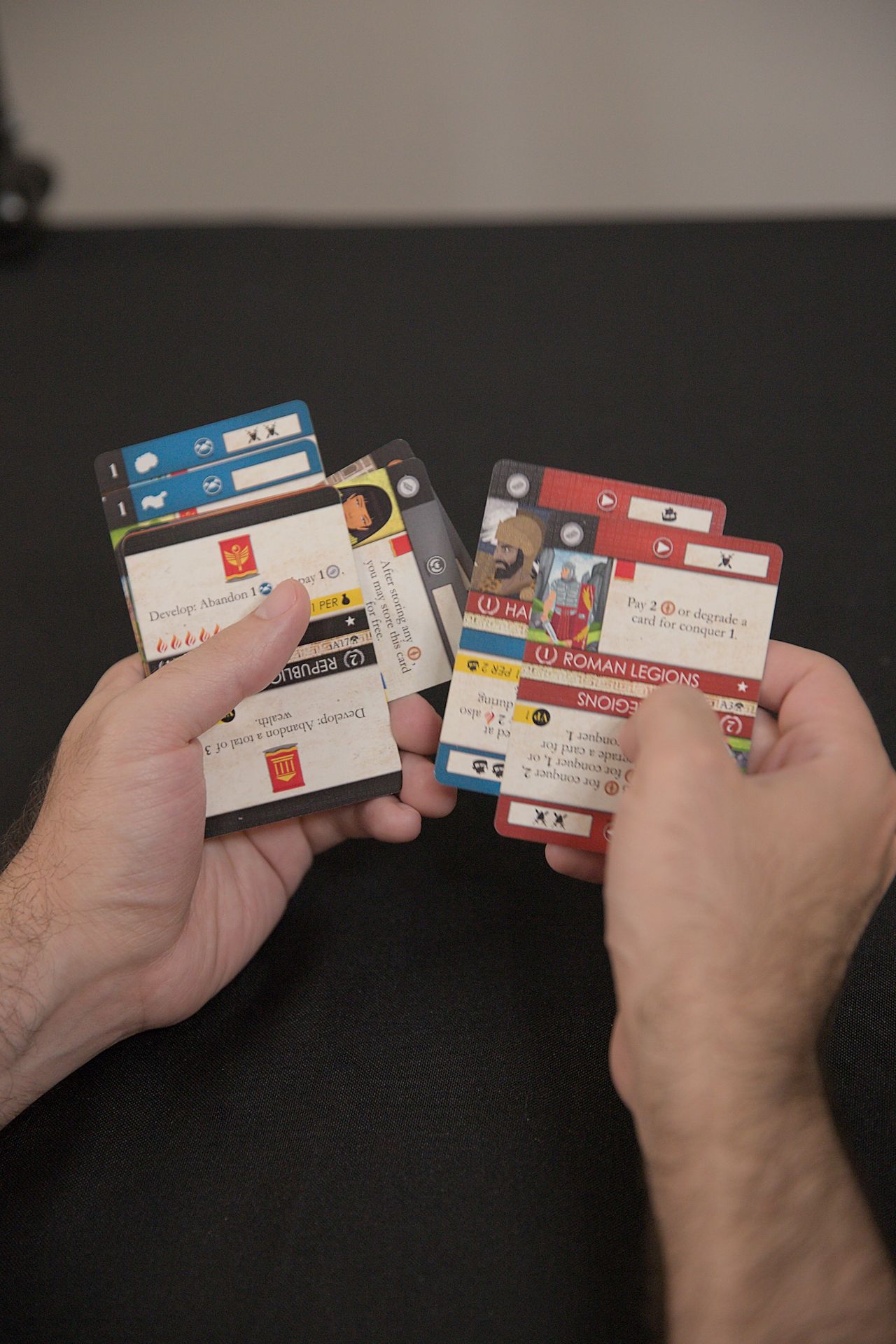
Sessions usually stretched beyond an hour, making the save cards in the deluxe version incredibly helpful. They’re essential if, like me, you can’t always dedicate large chunks of time in one go. The downside, though minor, is that physically holding conquered regions and stored resources started to feel awkward and fatiguing as the game progressed.
On a brighter note, as numerous as the strategies in Behold: Rome are the levers that players can pull to fine-tune the difficulty to taste. Game difficulty can be tweaked by giving the player an advantage or disadvantage at the start of the game. Rival civilization difficulty can also be adjusted independently by adding to or subtracting from the rival’s score. If all else fails, you can play the Score Chaser Mode that ignores the rival civilization altogether and so you just play a beat-your-own-score (BYOS) game.
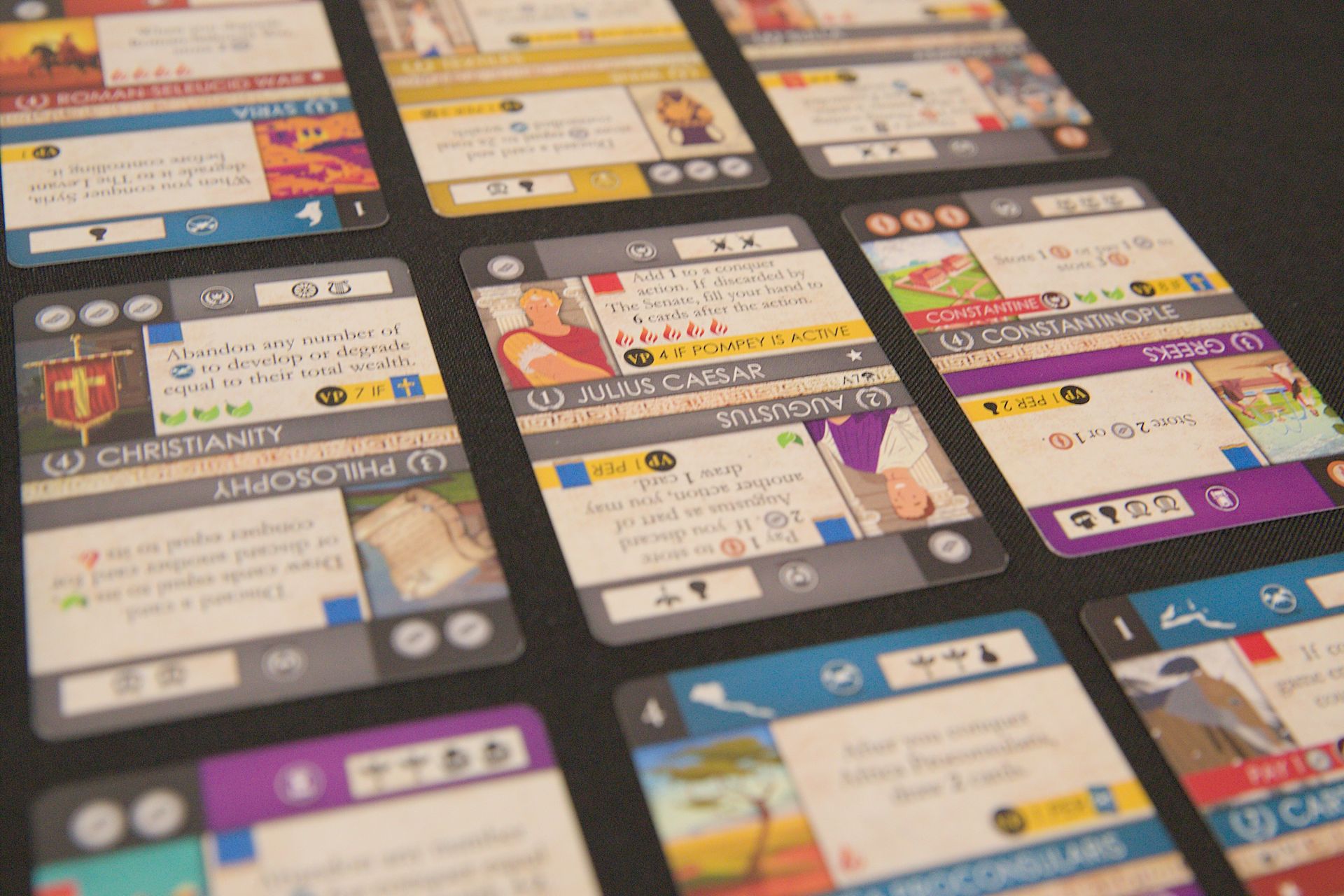
Scoring, meanwhile, presents its own challenges. It’s detailed—sometimes painstakingly so—reminding me more of completing taxes than tallying a victory and there isn’t a scoring sheet to help walk you through it. Fortunately, the rulebook does recommend a community-made scoring app to streamline this process significantly. And it works really well! Still, the complexity meant it was tough to accurately gauge how well I was doing mid-game. And just to prove my point, after a few games when I thought I had the rules under my belt, I calculated my score and then compared it with the scoring app’s calculation. Not only did I find that I made a mistake tallying the score, but I still lost on easy rival difficulty—ouch.
I genuinely appreciated the game’s thoughtful design choices, such as the absence of shuffling, which helps keep things tidy and focused. Additionally, packing so many game mechanics–resource management, set collection, multi-use cards, and deckbuilding–is commendable. It was an ambitious undertaking and it mostly works. What really shines, however, is the design of the rival civilizations. They require zero maintenance. They score only at the game’s end based on your civilization’s progress. It made every round’s end exciting, as I’d peek at the rival’s card and plan my next moves to thwart their cunning (yet imaginary) schemes. It’s a clever system that keeps the pressure on without making me juggle another complicated rule set.
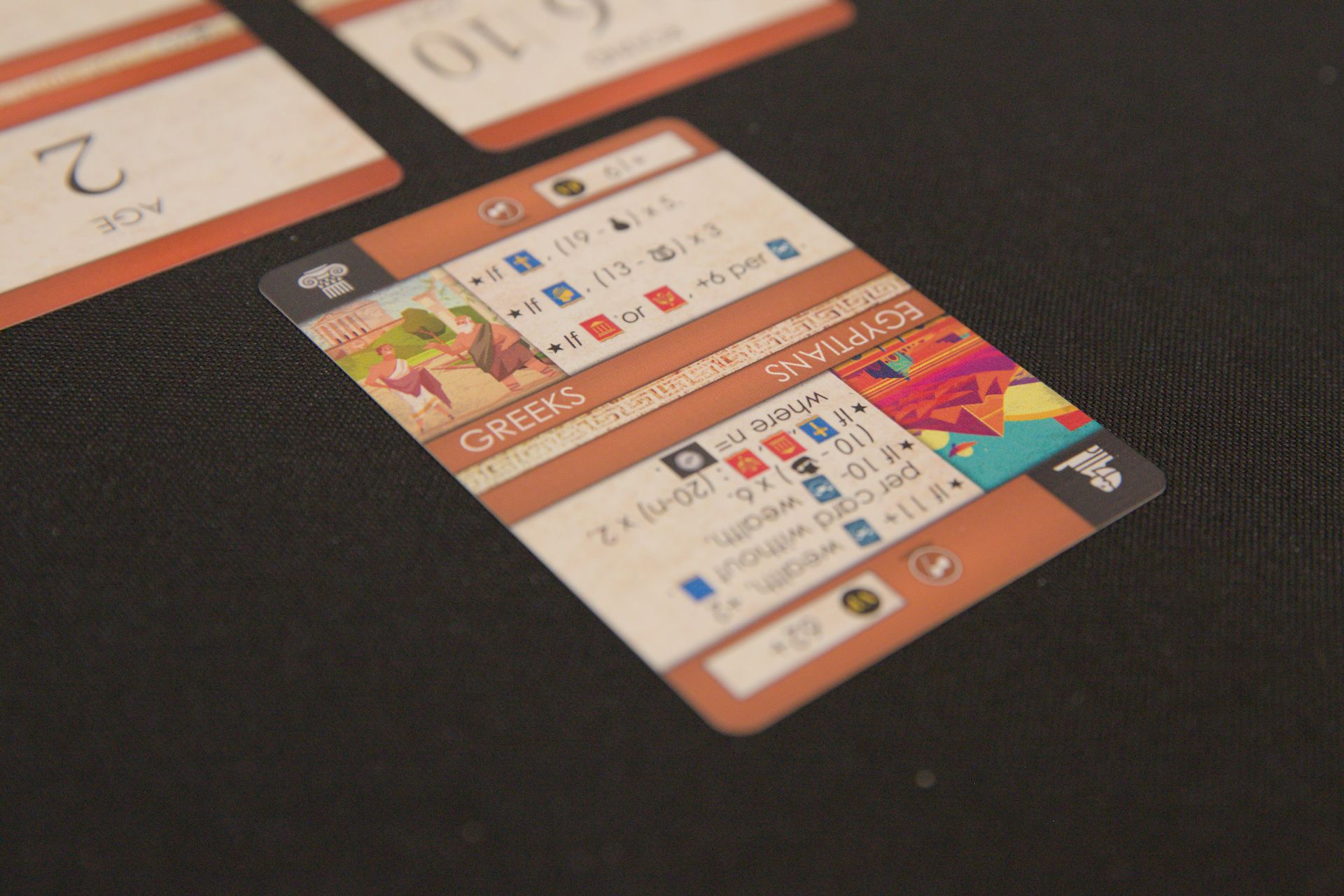
Components and Design #
The artwork and component quality in Behold: Rome is pretty solid. Each card’s colorful, cartoony art clearly illustrates its purpose. It’s a Civilization VI cartoony art style reimagined as a snappy mobile game. It’s an impressive visual step up and adds a welcome charm to the experience. Though there is still room for improvement as some cards were clearly outside of the predominant art style.
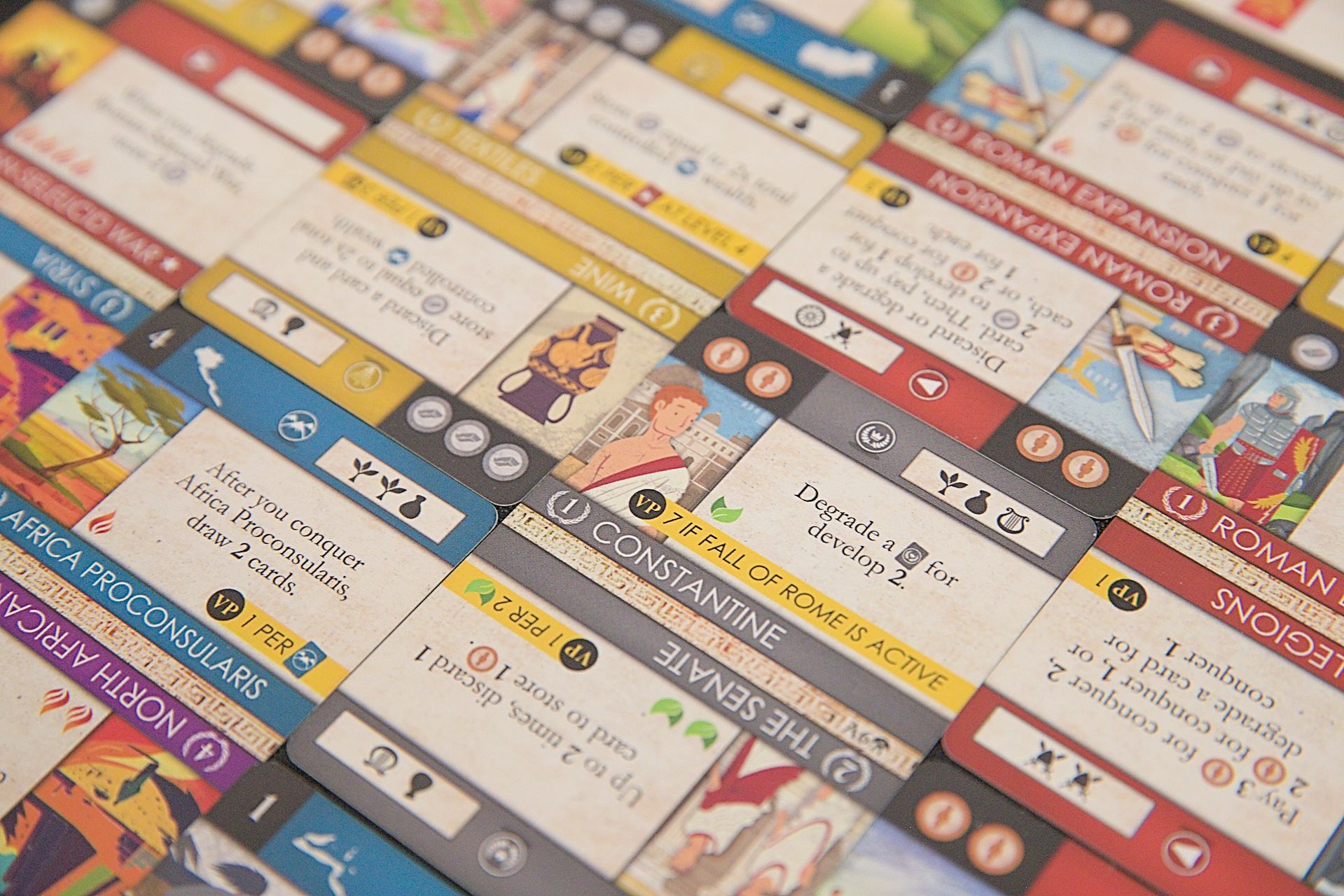
Thematically, the game really hits its mark. Managing resources, developing nation statuses, and responding to rival civilizations felt immersive and engaging. The theme motivated me to ponder about the historical figures that different cards represented and how and why the synergies worked the way they did. For example, Mark Antony supports Julius Caesar and triggers additional prosperity if both are present. I particularly enjoyed exploring the different paths my civilization could take—whether focusing on certain leaders, tech advancements, or nation statuses—and how each decision uniquely shaped my empire. The rival civilizations also have logically thematic scoring, which deepened the sense of genuine competition despite zero direct interaction.
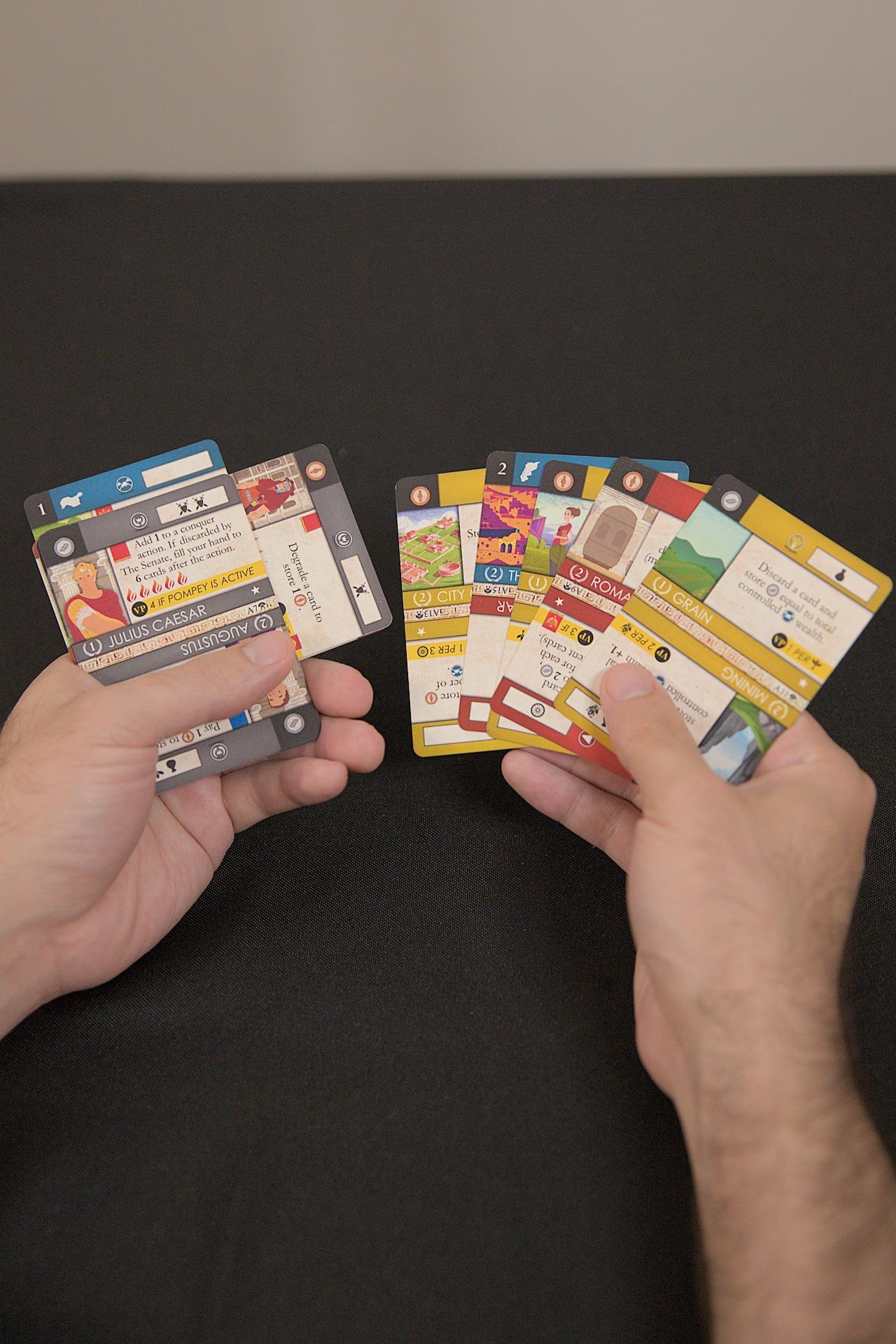
Final Thoughts #
In the end, Behold: Rome is a thoughtful, if somewhat exhausting, card-driven solo experience. There’s plenty here to chew on—perhaps even too much at times. If you love deep, brain-burning strategic puzzles and don’t mind complex scoring, you’ll likely find this game rewarding. But if you’re hoping for a breezy, streamlined solo experience like Dragons of Etchinstone, you might end up feeling overwhelmed.
We purchased this product independently. All opinions expressed are independent, honest, and unbiased.
- The game offers deep solo strategy without requiring a table or much physical space.
- Rival civilizations add tension and challenge with zero upkeep or extra rules to manage.
- Adjustable difficulty and alternate modes let players tailor the experience to their taste.
- The steep learning curve and opaque strategies may overwhelm some solo board gamers.
- Holding all cards and resources in hand can get awkward during longer play sessions.
- Sessions often exceed an hour, which may not suit players seeking a quick solo game.
Learn more about how we rate board games...
